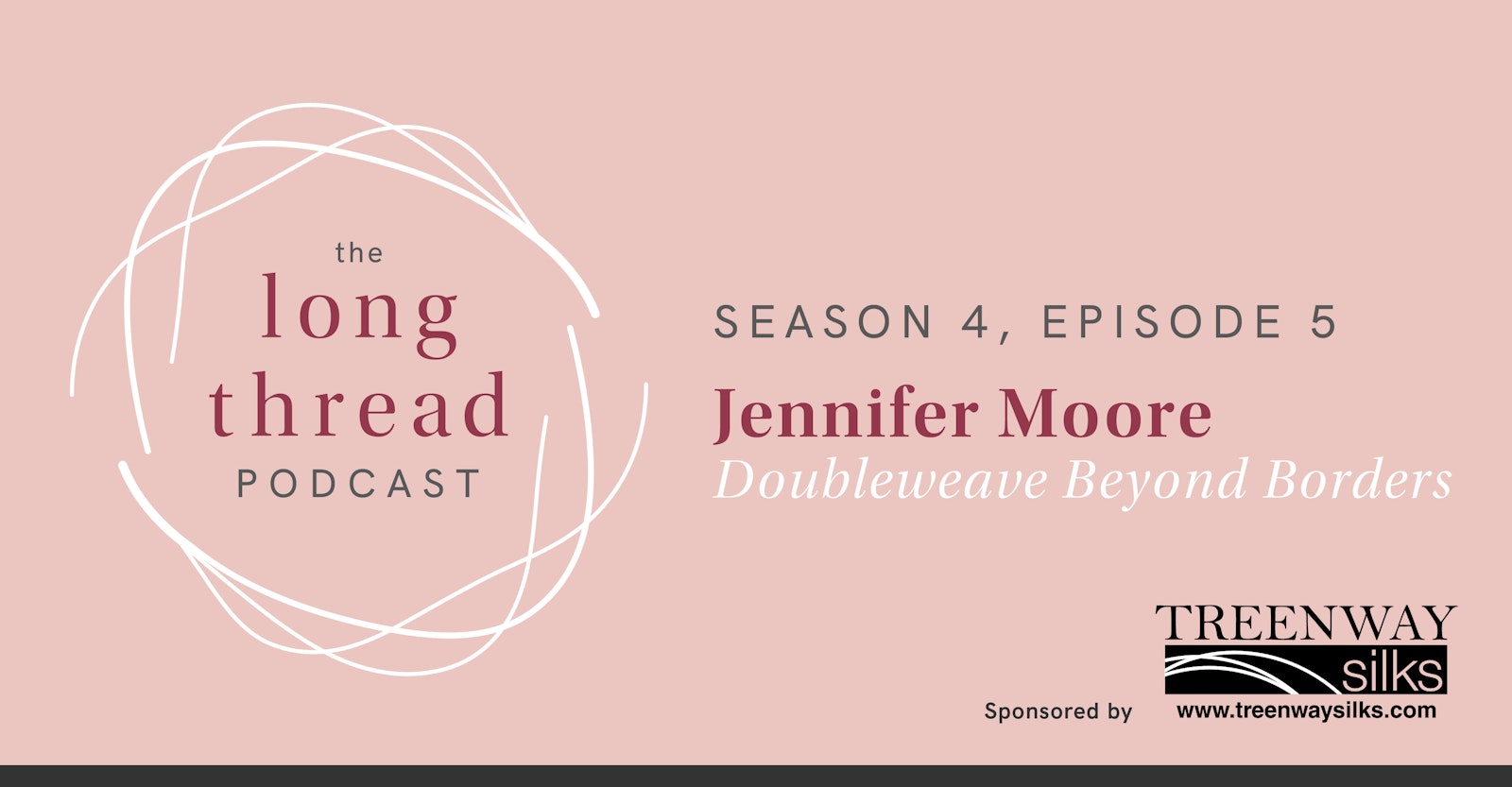Subscribe to The Long Thread Podcast:


What does it mean to revive a skill that's been lost for centuries?
In Inca and pre-Inca cultures, weavers in the Andes practiced a form of doubleweave that disappeared sometime after contact with Europeans. Museum collections include pre-Columbian pieces made in doubleweave, but the skilled artisans who wielded backstrap looms at the beginning of this millennium didn't know the technique.
Jennifer Moore was a doubleweave expert when she first went to Peru, with experience teaching the technique to weavers on 4+ shafts. She practiced doubleweave in her studio, working with the interplay of colors and geometric designs. She spoke a little Spanish, no Quechua (the local language), and had tried basic weaving on a backstrap loom a few times.
How did a weaver working with a compu-dobby loom teach expert Andean weavers a technique from their own heritage? She started by teaching herself first, then planting the seeds of an art that has taken root again its native culture.
Join Jennifer Moore as she describes her journey in doubleweave and the thread that joins weavers across time.
This episode is brought to you by:

You’ll find the largest variety of silk spinning fibers, silk yarn and silk threads & ribbons at TreenwaySilks.com. Choose from a rainbow of hand-dyed colors. Love natural? Their array of wild silk and silk-blends provide choices beyond white.
Treenway Silks—where superior quality and customer service are guaranteed.
Links:
Jennifer Moore's website is, appropriately, Doubleweaver.com.
Jennifer's video courses on Doubleweave Basics, Doubleweave Pickup, Block Doubleweave on 8 Shafts, and Doubleweave on 4 Shafts are available in the Long Thread Media store and online education site.
Jennifer's most recent book is The Weaver's Studio: Doubleweave Revised & Expanded.
Andean Textile Arts
Center for Traditional Textiles of Cusco
Amano Pre-Columbian Textile Museum, Lima, Peru
Laverne Waddington
International Folk Art Market

